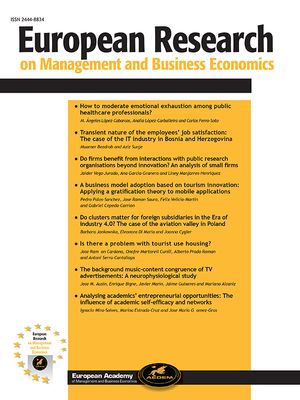El presente trabajo analiza las diferencias en el funcionamiento del modelo explicativo del desarrollo de satisfacción y lealtad por parte del turista entre dos grupos culturales distintos (individualistas con baja aversión a la incertidumbre, y colectivistas con alta aversión a la incertidumbre), así como la posible existencia de variables mediadoras y moderadoras en la relación entre satisfacción y lealtad. Específicamente, el modelo cognitivo-afectivo utilizado contempla el papel jugado por las expectativas ajustadas como mediadoras entre la satisfacción del consumidor y su lealtad. Los resultados obtenidos indican la existencia de diferencias relevantes en el comportamiento de los dos grupos culturales analizados.
The present research focuses on the differences that the tourists' belonging to two unlike cultural groups i.e., low uncertainty avoidance individualists versus high uncertainty avoidance collectivists imposes on the performance of the model explaining the generation of satisfaction and loyalty by tourists. The hypothetical effect of mediating or moderating variables on the relationship between satisfaction and loyalty is also addressed. Specifically the role of consumers' adjusted expectations as mediating the relationship between satisfaction and loyalty is included in the cognitive-affective explanatory model used in the research. Some results are found that show relevant differences in the behavior of the individuals pertaining to each of the groups considered.





